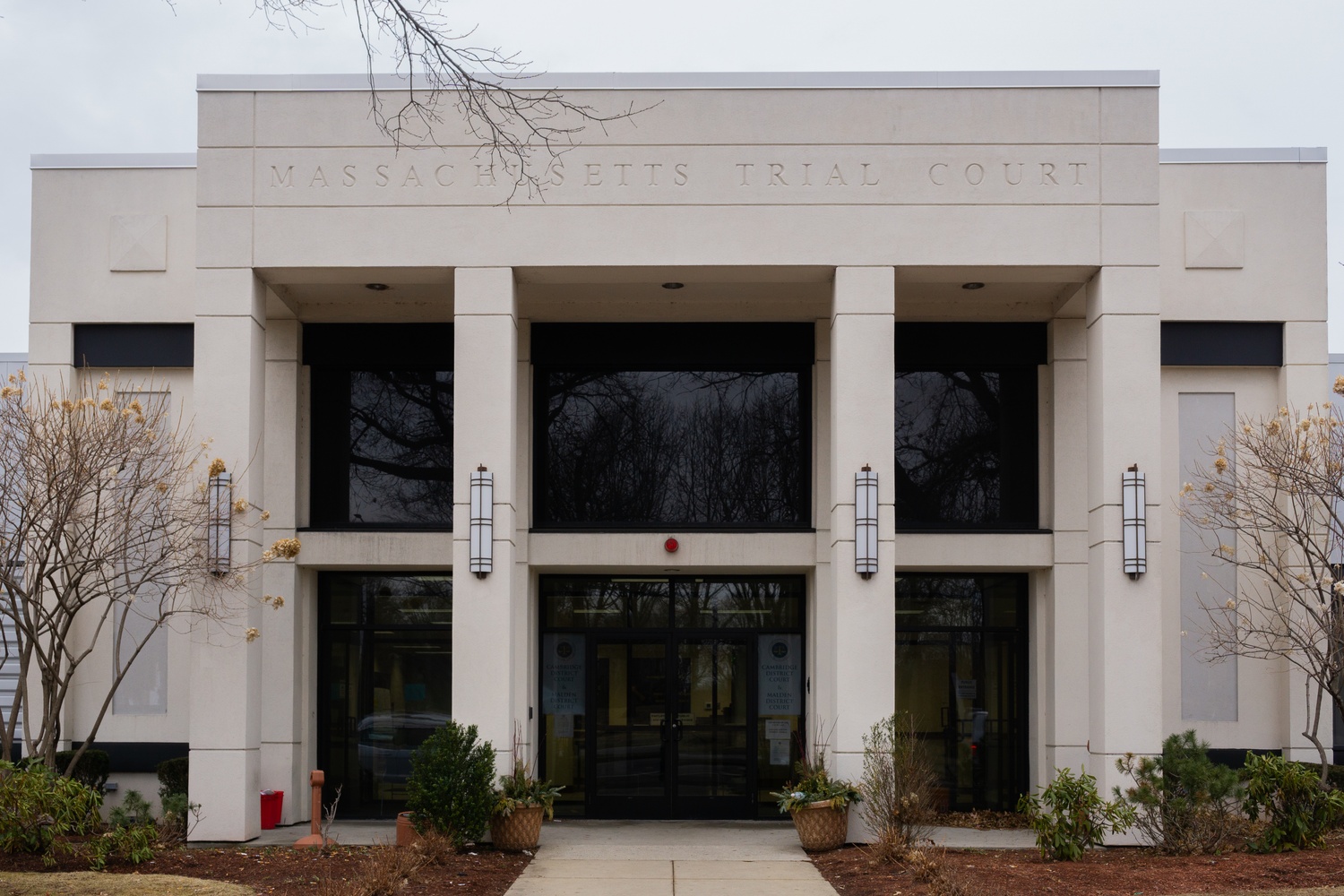
News
Summers Will Not Finish Semester of Teaching as Harvard Investigates Epstein Ties

News
Harvard College Students Report Favoring Divestment from Israel in HUA Survey

News
‘He Should Resign’: Harvard Undergrads Take Hard Line Against Summers Over Epstein Scandal

News
Harvard To Launch New Investigation Into Epstein’s Ties to Summers, Other University Affiliates

News
Harvard Students To Vote on Divestment From Israel in Inaugural HUA Election Survey
20 Defendants in Cambridge Brothel Case Agree to Pretrial Probation

Twenty defendants charged in purchasing commercial sex through a Cambridge brothel network accepted the prosecution’s conditions of pretrial probation on Tuesday, avoiding conviction.
At the pretrial hearings at the Cambridge District Court, the men each agreed to a nine-month probation period, during which they are prohibited from contacting sex workers and are required to complete 24 hours of community service.
They are also required to attend Spectrum Health Systems’ Community Approach to Reduce Demand program — a one-day module that includes presentations on the impact of prostitution on communities, as well as personal testimonies from survivors of sexual exploitation.
In addition, the men were ordered to pay $2,000 to either My Life My Choice or Living in Freedom Together, two nonprofit organizations dedicated to human trafficking prevention.
If the defendants abide by the conditions of their release through the nine-month probation period, they will have their case dismissed by Massachusetts District Court Judge David E. Frank, who has presided over all of the defendants’ cases. If any of the men violate the terms of the agreement, their case will proceed to trial.
By agreeing to pretrial probation, the men avoided an admission or conviction of guilt in their cases.
Middlesex Assistant District Attorney Anna Taillon said that the $2,000 court fee — which she compared to a donation — is a way for the defendants to “give back to the community in a meaningful way” that is related to the effects of their actions.
There are 34 total defendants charged in the case, including Mitchell H. Rubenstein, an assistant professor of dermatology at Harvard Medical School, and James C. Cusack, an oncologist and former Harvard Medical School professor. Both agreed to the probation terms at the hearing.
All alleged clients involved in the brothel network — which operated in parts of Cambridge and Washington D.C. suburbs from at least July 2020 to November 2023 — face a misdemeanor charge of sexual conduct for a fee, a charge that rarely results in jail time even in the case of a conviction.
This is the first round of pretrial hearings, where defendants have the opportunity to negotiate a plea deal, attempt to dismiss their case, or set a trial date.
The remaining 14 defendants — including Cambridge city councilor Paul F. Toner, the highest-profile name among the men charged in the case — will appear for pretrial hearings next week. Toner allegedly paid for services from the brothel network more than a dozen times in 2023.
Toner, like the other defendants, was publicly named and charged in connection to the brothel in March after a monthslong legal battle to keep clients’ names private.
Toner has since faced calls to resign from constituents and all but three of his fellow city councilors — Ayesha M. Wilson, Catherine “Cathie” Zusy, and Mayor E. Denise Simmons.
“He did something really stupid. No, I don’t think he should resign from the Council,” Zusy wrote in a March statement. “We need him.”
Simmons then quietly stripped him of his committee chairships in late March.
Though Toner has resisted the calls to step down from his position, he announced earlier this month that he would not be running for reelection in the fall.
—Staff writer Megan L. Blonigen can be reached at megan.blonigen@thecrimson.com. Follow her on X at @MeganBlonigen.
—Staff writer Caroline G. Hennigan can be reached at caroline.hennigan@thecrimson.com. Follow her on X @cghennigan.
Want to keep up with breaking news? Subscribe to our email newsletter.
